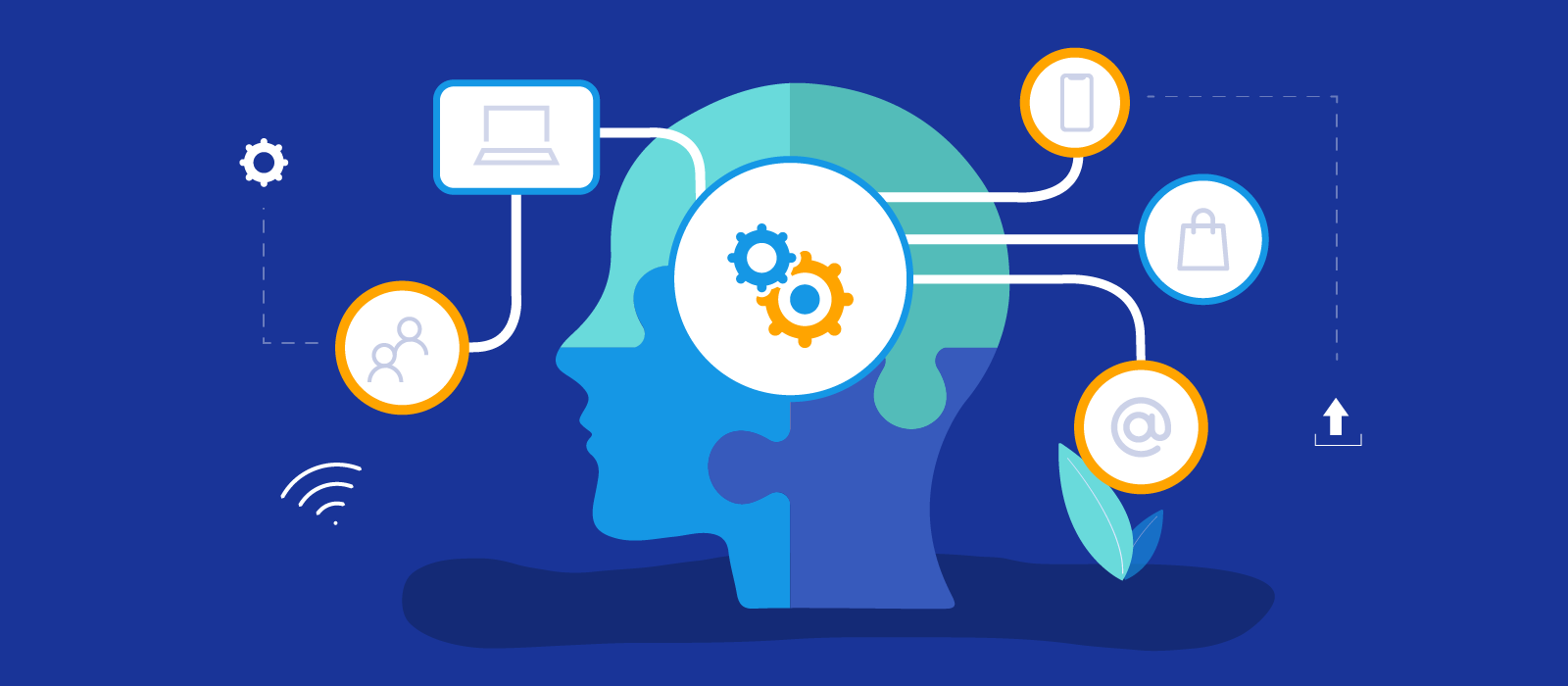Unveiling the Power of Data: The Internet of Behavior
The Internet of Behavior (IoB) is a concept that revolves around understanding and analyzing data-driven human behavior. It involves the collection and analysis of various data points from individuals’ online activities, such as their browsing habits, social media interactions, and online purchases. By leveraging this data, organizations can gain insights into consumer behavior, preferences, and trends, enabling them to make more informed decisions and deliver personalized experiences. The IoB has the potential to revolutionize industries such as marketing, healthcare, and cybersecurity, as it offers a deeper understanding of human behavior in the digital realm.
The Impact of Internet of Behavior on Personalized Marketing Strategies
The Internet of Behavior (IoB) is a concept that has gained significant attention in recent years. It refers to the collection and analysis of data from various sources to understand and predict human behavior. This data-driven approach has the potential to revolutionize many aspects of our lives, including personalized marketing strategies.
One of the key impacts of the IoB on personalized marketing strategies is the ability to gather and analyze vast amounts of data about individual consumers. With the proliferation of smart devices and the increasing connectivity of everyday objects, there is a wealth of information available about people’s preferences, habits, and behaviors. This data can be used to create highly targeted marketing campaigns that are tailored to the specific needs and interests of each individual.
For example, imagine a scenario where a consumer is browsing an online store for a new pair of shoes. With the IoB, marketers can track the consumer’s browsing behavior, analyze their preferences, and make personalized recommendations based on their past purchases and browsing history. This level of personalization can greatly enhance the consumer’s shopping experience and increase the likelihood of a purchase.
Furthermore, the IoB can also enable marketers to understand the emotional state of consumers. By analyzing data from social media posts, online reviews, and even facial expressions captured through video analysis, marketers can gain insights into how consumers feel about their products or services. This information can be used to tailor marketing messages and campaigns to elicit specific emotional responses from consumers, such as excitement, trust, or nostalgia.
Another important impact of the IoB on personalized marketing strategies is the ability to deliver real-time, contextually relevant content to consumers. With the IoB, marketers can gather data about a consumer’s location, time of day, and even their current activity. This information can be used to deliver targeted advertisements or offers that are highly relevant to the consumer’s immediate context.
For instance, a consumer walking past a coffee shop could receive a notification on their smartphone with a special offer for a discounted coffee. This type of real-time, location-based marketing can greatly enhance the effectiveness of personalized marketing strategies by delivering timely and relevant content to consumers when they are most likely to act on it.
However, it is important to note that the IoB also raises concerns about privacy and data security. The collection and analysis of personal data on such a large scale can potentially infringe on individuals’ privacy rights. It is crucial for marketers to ensure that they are transparent about the data they collect and how it will be used. Additionally, robust security measures must be in place to protect the data from unauthorized access or misuse.
In conclusion, the Internet of Behavior has the potential to revolutionize personalized marketing strategies by enabling marketers to gather and analyze vast amounts of data about individual consumers. This data-driven approach allows for highly targeted marketing campaigns, personalized recommendations, and real-time, contextually relevant content. However, it is important for marketers to address privacy and security concerns to ensure that the benefits of the IoB are realized without compromising individuals’ rights and safety.
Exploring the Ethical Implications of Internet of Behavior
The Internet of Behavior (IoB) is a concept that has gained significant attention in recent years. It refers to the use of data collected from various sources to understand and influence human behavior. This data-driven approach has the potential to revolutionize the way we understand and interact with individuals, but it also raises important ethical considerations.
One of the key ethical implications of the IoB is the issue of privacy. As more and more data is collected about individuals, there is a growing concern about how this information is being used and who has access to it. The IoB relies on the collection of personal data from various sources, such as social media, wearable devices, and even public surveillance cameras. This raises questions about consent and the right to privacy. Individuals may not be aware that their data is being collected and used to influence their behavior, which can be seen as a violation of their privacy rights.
Another ethical concern is the potential for discrimination and bias in the use of IoB technologies. The data collected may not be representative of the entire population, leading to biased insights and decisions. For example, if the data used to understand and influence behavior is primarily collected from a specific demographic group, it may not accurately reflect the experiences and needs of other groups. This can result in unfair treatment and discrimination based on factors such as race, gender, or socioeconomic status.
Furthermore, the IoB raises questions about the transparency and accountability of the organizations and individuals using this technology. As the collection and analysis of data become more complex, it becomes increasingly difficult to understand how decisions are being made and who is responsible for them. This lack of transparency can erode trust and make it challenging to hold individuals or organizations accountable for their actions.
Additionally, the IoB has the potential to create a surveillance society, where individuals are constantly monitored and influenced. This raises concerns about autonomy and freedom of choice. If individuals are constantly being nudged or influenced based on their data, it can limit their ability to make independent decisions and shape their own behavior. This can have far-reaching implications for personal freedom and individuality.
To address these ethical implications, it is crucial to establish clear guidelines and regulations for the use of IoB technologies. This includes ensuring that individuals have control over their own data and are aware of how it is being used. It also requires organizations to be transparent about their data collection and analysis practices, as well as accountable for the decisions made based on this data.
Furthermore, it is essential to promote diversity and inclusivity in the data used for IoB. This means collecting data from a wide range of sources and ensuring that it represents the diversity of the population. By doing so, we can minimize the risk of bias and discrimination in the insights and decisions made based on this data.
In conclusion, the Internet of Behavior has the potential to revolutionize our understanding and influence of human behavior. However, it also raises important ethical considerations, such as privacy, discrimination, transparency, and autonomy. To ensure the responsible and ethical use of IoB technologies, it is crucial to establish clear guidelines and regulations, promote diversity in data collection, and prioritize individual rights and autonomy. By doing so, we can harness the power of IoB while protecting the rights and well-being of individuals.
How Internet of Behavior is Revolutionizing Healthcare and Wellness
The Internet of Behavior (IoB) is a concept that is revolutionizing various industries, including healthcare and wellness. IoB refers to the collection and analysis of data from various sources to gain insights into human behavior. This data-driven approach has the potential to transform the way healthcare and wellness services are delivered, leading to improved outcomes and personalized experiences for individuals.
One of the key ways in which IoB is revolutionizing healthcare is through the use of wearable devices. These devices, such as fitness trackers and smartwatches, collect data on various aspects of an individual’s health and wellness, including heart rate, sleep patterns, and physical activity. This data can then be analyzed to identify patterns and trends, providing valuable insights into an individual’s overall health and well-being.
By leveraging IoB, healthcare providers can gain a deeper understanding of their patients’ behavior and make more informed decisions about their care. For example, if a patient consistently has poor sleep patterns, IoB data can help identify potential causes and suggest interventions to improve sleep quality. This personalized approach can lead to better health outcomes and a more proactive approach to healthcare.
IoB is also transforming the way wellness services are delivered. With the increasing popularity of wellness apps and platforms, individuals have access to a wealth of information and resources to support their well-being. These platforms can collect data on users’ behaviors, such as their exercise routines, dietary choices, and stress levels. By analyzing this data, wellness providers can offer personalized recommendations and interventions to help individuals achieve their wellness goals.
Furthermore, IoB can enable the integration of healthcare and wellness services, creating a more holistic approach to individual well-being. For example, by combining data from wearable devices with electronic health records, healthcare providers can gain a comprehensive view of an individual’s health and wellness. This integrated approach allows for more effective care coordination and the identification of potential health risks before they become serious issues.
However, the use of IoB in healthcare and wellness also raises important ethical considerations. The collection and analysis of personal data raise concerns about privacy and data security. It is crucial for organizations to ensure that individuals’ data is protected and used in a responsible and transparent manner. Additionally, there is a need for clear regulations and guidelines to govern the use of IoB in healthcare and wellness to ensure that individuals’ rights are respected.
In conclusion, the Internet of Behavior is revolutionizing healthcare and wellness by providing valuable insights into human behavior. Through the collection and analysis of data, IoB enables personalized care and interventions, leading to improved health outcomes. However, ethical considerations must be addressed to ensure the responsible and transparent use of personal data. As IoB continues to evolve, it has the potential to transform the way healthcare and wellness services are delivered, ultimately improving the well-being of individuals.The Internet of Behavior (IoB) is a concept that focuses on understanding and analyzing data-driven human behavior. It involves collecting and analyzing vast amounts of data from various sources, such as social media, wearable devices, and online activities, to gain insights into individuals’ behaviors, preferences, and habits. By leveraging this data, organizations can personalize their products and services, improve customer experiences, and make data-driven decisions. However, the IoB also raises concerns about privacy, data security, and ethical considerations. As technology continues to advance, it is crucial to strike a balance between harnessing the power of the IoB and protecting individuals’ privacy and rights.



















